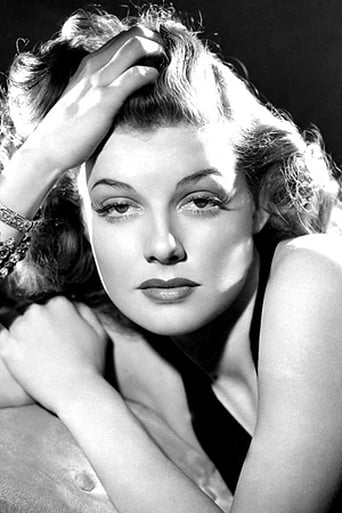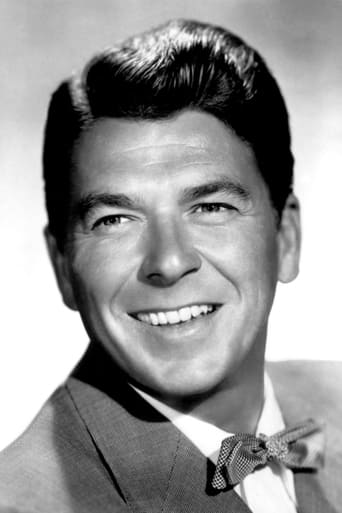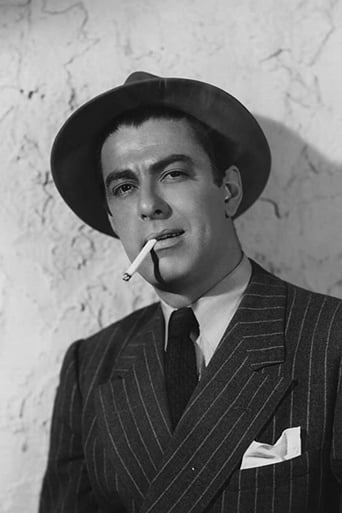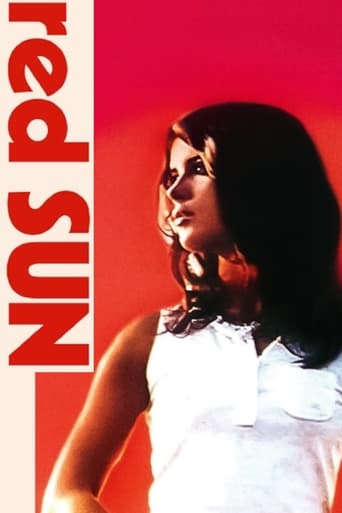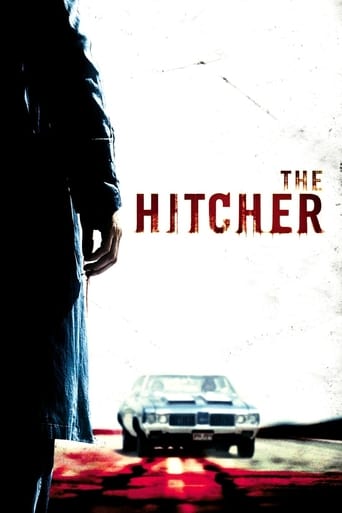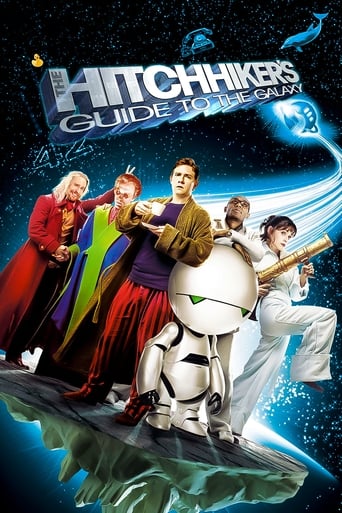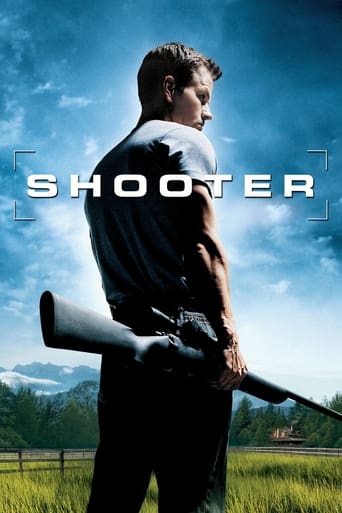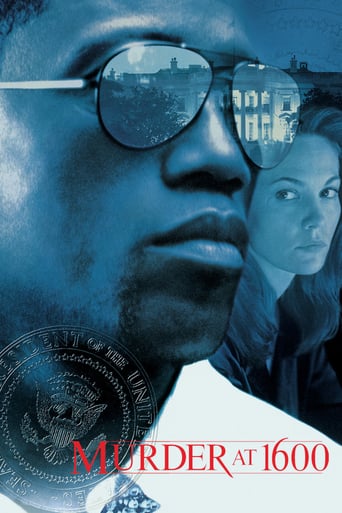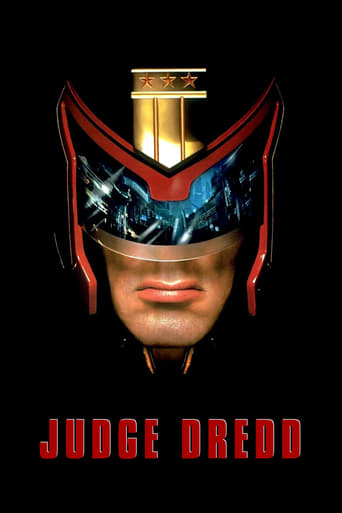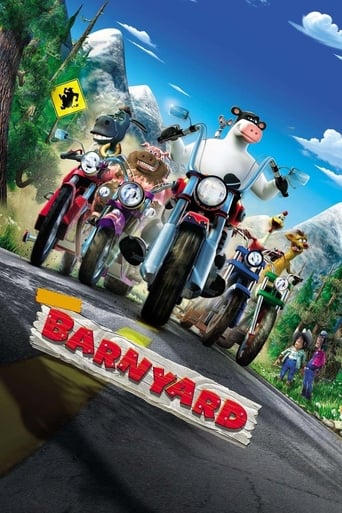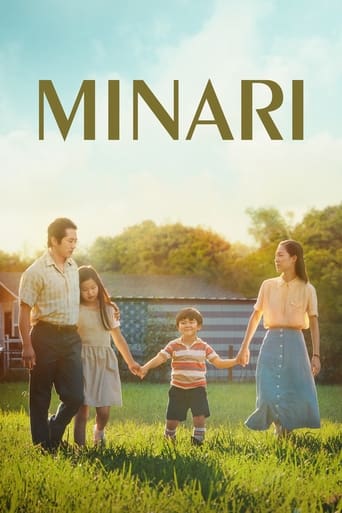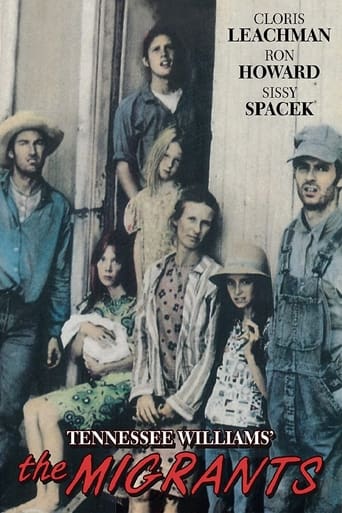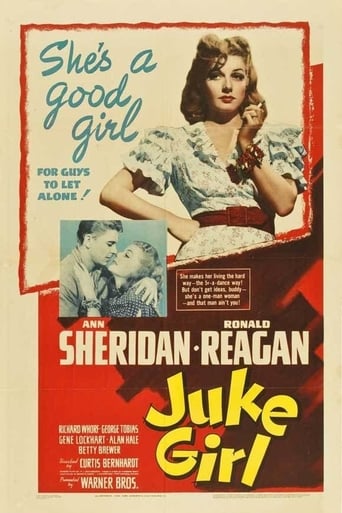
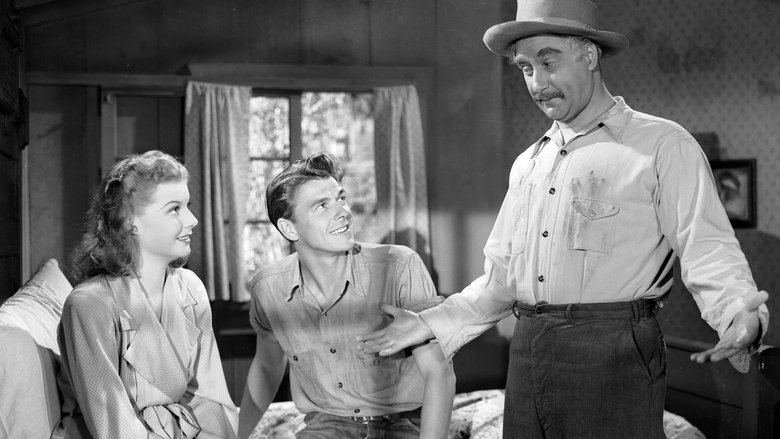
Juke Girl (1942)
During the depths of the Great Depression a hitch-hiker Steve Talbot and jukebox-joint hostess Lola Mears stumble into Cat-Tail Florida where farmers and pickers struggle under the buyer who rules by monopoly, dirty contracts and violence. Steve helps organize against the buyer, leading to further escalation ending in a lynch mob.
Watch Trailer
Cast


Similar titles
Reviews
Steve (Ronald Reagan) and Danny (Richard Whorf) are friends who are out of work. When they arrive at a crappy town in Florida, both move in different directions. Danny turns out to be a rather amoral guy and sees that his best bet is working for the local strong-man, Madden (Gene Lockhart). Steve doesn't understand this, as Madden is underhanded and treats the local farmers like dirt. One farmer in particular, Nick (George Tobias), has gotten on Madden's bad side and Madden has decided to ruin him. Can nice-guy Nick manage to defeat Madden and his forces of evil? And, can Steve manage to win the heart of a local juke-girl (a lady who works in a bar and whose job it is to dance with customers and get them to drink)?This is an interesting film because in many ways it's like a 1940s western...yes, western. While there are no cowboys, the idea of a local boss-man ruining people and using his gang of thugs is very, very common in westerns. It's also interesting to see Reagan playing such a populist sort of role, though it was very much in line with the Reagan of the 1940s (a union man through and through).So is it any good? Well, for the first 90% of the film, I'd say yes. However, the ending has quite a few problems. Seeing the town inexplicably turn into a lynch mob made little sense--especially when one of Madden's goons is clearly egging them to action. Additionally, Madden's behavior at the very end made little sense--he was evil through all the film--so why would he suddenly do the right thing?! All I know is that it's frustrating to see a good film that folds up at the end of the movie. Worth seeing but it should have been better.
Considering how distant Cesar Chavez and Ronald Reagan were in philosophy, what would have the founder of the United Farm Workers thought of the Gipper starring in a film about migrant workers? I wonder if Chavez ever saw Juke Girl? A title by the way which one would never guess was about agriculture. When I first saw the title on the list of credits for Ronald Reagan, I thought it was some Forties musical with swing dancing.It's far from that. The title role is played by Ann Sheridan and she works in a roadside bar and dance club favored by the itinerant farm workers in that area of Florida. Two such migrant workers are Ronald Reagan and Richard Whorf who arrive in town. Whorf goes to work for the local wholesaler Gene Lockhart who pretty much sets prices his way as the farmers have nowhere else to sell their produce. Having lost a farm to the dust bowl in Kansas, Reagan's sympathies go out to farmer George Tobias who is trying to beat Lockhart's monopoly. The two friends become adversaries, but the friendship is strong, how strong everyone in the cast finds out before the film is over.Juke Girl with its deceptive title is a far cry from The Grapes Of Wrath, both book and film. The Joad family is on the road, not just the male breadwinner. Some of the actions Reagan takes in this film could never have been done by Tom Joad who carried responsibility for the whole Joad clan on the road. The players perform pretty much according to type. Ann Sheridan has some juicy lines, like the character she played in Torrid Zone had moved from Central America to Florida. Gene Lockhart who specialized in portraying particularly craven individuals is within his element, this may have been the most craven part Lockhart ever played.Juke Girl is hardly the sociological treatise that The Grapes Of Wrath was. But it's entertaining enough for the fans of the players in the cast.
A depression story that while it entertains fails in the long haul. A too good looking Ronald Reagan plays a Tom Joad character by the name of Steve Talbot. All he wants to do farm but the local boss Madden , played against type by Gene Lockhart, doesn't want to see the farmers organize and who is aided by Steve's best friend Danny, Richard Whorf, and Madden's top henchman Cully, Howard Da Silva. And of course there is Steve's love interest Lola, Ann Sheridan. What hurts the story are the good looks of the leads. These are not the worn out physically depleted characters seen in The Grapes of Wrath. This cast looks like they just stepped right out of the latest pages of a Hollywood Magazine or Vogue. Apparently staring in this picture had no impact on the young Ronald Reagan who as president had little to none of Steve Madden but lots of Henry Madden. I guess if nothing else this film proves Reagan a good actor who was able to read the lines not live them.
Surprisingly vigorous programmer showing why Warner Bros. was the blue-collar studio of record. Had the occasional goofy humor and contrived climax been improved this could have been a sleeper. Reagan is lively and likable as the quick thinking ex-farmer-- no wooden soldier here. Whorf and Sheridan are appropriately intense, helping to inject a gritty feel. Reagan's friendship with Whorf is more interesting than the predictable romance with Sheridan. Whorf, an opportunist, splits from his hoboing buddy by siding with the crooked wholesaler (Lockhart) because he sees a lucrative future with a powerful employer. Reagan, on the other hand, is an idealist, willing to risk his future to help the victimized farmer (Tobias). In my book, the dynamic between them makes up the movie's core because it often presents a real-life choice.A number of nice touches. The bar scenes are atmospheric and staffed beyond programmer expectation. In fact, the settings as a whole from the hobo jungle to the honky-tonk street show genuine carenote even the "Madden" labels in the background of Madden's (Lockhart's) office. I suspect that producer Hal Wallis, a leading Hollywood producer, had a lot to do with this level of detail for what amounts to a very unglamorous production. Note too how the wholesalers collude to cheat the farmers. I expect that resonated with audiences still recovering from the Great Depression. All in all, the movie's much better than its rather misleading title suggests. (In passingnote presence of voluptuous Faye Emerson {Murph} who later achieved New York celebrity by marrying one of the Roosevelt sons and scandalizing early TV with a series of plunging neckline guest-show appearances. Also, for uncompromisingly fierce look at trucking and wholesalers, catch noir classic Thieves' Highway {1949}).


